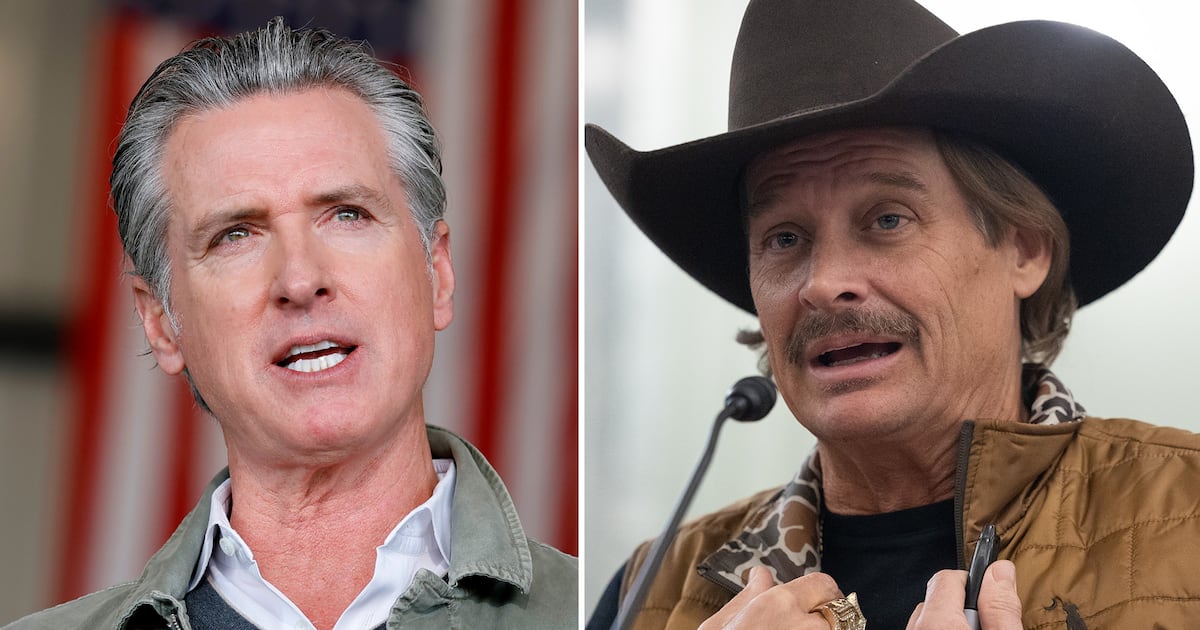Giorgio Moroder is the Don of dance. The Italian music maestro first came to international prominence in his mid-30s as the producer and songwriter behind Donna Summer's disco hits “I Feel Love” and “Love to Love You Baby”; his groundbreaking use of electronics and sequencers set the tone for the next few decades’ worth of dance music. From 1975 to 1984 or so, he produced a long string of hit records for Summer and other artists like David Bowie and Blondie, and composed the soundtracks for movies like Midnight Express and Scarface. His mantel is chock full of Oscars and Grammys (three of each).

Eventually, the music legend went out of fashion—but now, in his 70s, he's back in the spotlight.
Moroder acolytes Daft Punk included a track called “Giorgio by Moroder” on last year’s Random Access Memories—a tribute to his music, featuring Moroder’s own voice reminiscing about his career. He started getting asked to do DJ gigs, at which he mostly plays his own vintage productions, e.g. Blondie’s “Call Me,” Irene Cara’s “What a Feeling,” and Limahl’s “Neverending Story.” And now he’s once again getting called in to work on big-name artists’ records. I spoke to Moroder in Asheville, North Carolina, on the morning of his 74th birthday, following a DJ set he’d played at Moogfest's outdoor stage the night before.
You've just released a remix of Coldplay’s “Midnight.” How did that come together?
It’s astonishing, the reviews I get. I’ve had had at least five or six people saying “the best remix of the year”... It’s almost like I invented the remix.
You kind of did.
They asked me if I wanted to do the remix, and I said sure—Coldplay are one of my favorite groups, anyway—and they said all four guys from the band were interested. They were involved from the very beginning. I did it with my musician, a guy called Smitty. For that mix, I found a little piano line that went dun dun dun; I took it out and made it the main sound, and I came up with the background choir. It came together relatively fast. We had live drums, and of course live piano, but actually, it has very little electronics. Coldplay used their mixer to do the final mixdown, which I got and I loved. But I noticed yesterday it didn’t translate well with the audience—not yet. They have to know it a little bit. Chris Martin is not the singer with the most energy; it’s all very soft. If “Midnight” becomes a hit, then I think it’s going to do well.
Since we’re at Moogfest, can you talk about your early experiences with Moog synthesizers?
I loved the sound of Walter Carlos—who is now Wendy Carlos. He recorded Switched-On Bach. I loved it. So I started to inquire about the Moog, and a classical composer in Germany, Eberhard Schoener, had one; I think he had three of the modules. I used his tech, and I would ask him, “OK, give me a sound of a guitar,” or something. It would take hours to find them and tune them and play them. The first song where I used it was “Son of My Father,” and the interesting thing is this: I wrote that in 1971! I wonder when Kraftwerk started using the Moogs.
They started using a Minimoog in 1973, I think.
There was no Minimoog when I started. But they used it completely differently, of course.
What other pieces of music technology have made you think, “I could really use this?”
A lot of things. I just read an interview with Roger Linn, the inventor of the Linn Drum. I had the second Linn Drum he ever built. He was a nice guy from San Francisco; he would travel with his prototype and show it to people and they would order it. So he came to my studio and I loved it. I probably overused it, but it was really helpful to do good demos with. So that one was great. And I was one of the first ones to record direct to digital two-track. I have a room full of machines. One thing that's surprised me lately is that now, on a recording that's mixed, you can take out notes and change them! It almost sounds impossible. A friend of mine knows how to use it. He says if a string in a song is a little off-key, you can pick it out and change it.
Are there recordings you've made in the past that you wish more people had caught on to?
This was a long time ago, but I did an album called Einzelgänger [in 1975]. If I listen to it now, I know exactly why it didn’t work, but I wish it would have, because it has some incredible sounds. I listened to the album two or three months ago—I’d forgotten it—and I may go back and try to re-create some of the sounds. I made that with the Moog, too. This was way before “I Feel Love.”
You were a performer before you were known as a producer, and now you’re back to appearing on stage. What part of music-making do you enjoy most?
The best part—I like to be in my studio, doing demos. I used to be totally in control of the recording, with Donna Summer, David Bowie... now I tend to give tracks to singers, and they do it.
And what else are you working on right now?
I’ve started working with Kelis; she was great, and she’s coming back to finish the arrangement, probably this week. I’m working with Lana Del Rey as soon as she’s done with her album. Wonderful lady… a little crazy. I’ve met a great guy, Gary Go. I think he’s coming back in on Tuesday. I have so many offers of work that it’s not easy, because everybody wants the best, right? One absolutely top R&B guy, I cannot say his name, he asked my management if I was interested. He loves one of my old songs, and he wants something in that style. Which is great! If you know what an artist wants, it’s so much easier. And I’m doing an album with myself—signing, hopefully, next week—and then the serious life starts. They pay, they want to see results. So I’m back into the studio.






